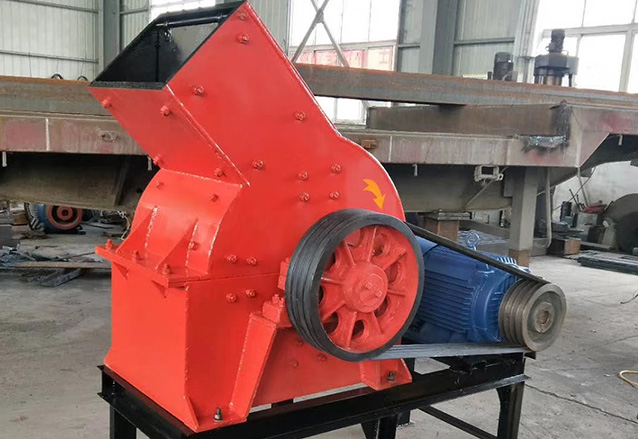
Introduction
Singapore, a global hub for trade and industry, has long been known for its strategic location, advanced infrastructure, and efficient logistics. However, the country's reliance on imported raw materials necessitates an efficient system for mineral processing and utilization. One of the key components in this process is the bluestone crusher, a vital piece of equipment that plays a crucial role in mining and mineral processing operations. This article delves into the significance of bluestone crushers in Singapore's mining sector and their impact on the overall efficiency of mineral processing.
The Importance of Mining and Mineral Processing in Singapore
Singapore, despite being a small city-state, has a robust industrial sector that demands a steady supply of raw materials. From construction to manufacturing, various industries require minerals such as limestone, granite, and sand. However, due to the limited availability of natural resources within the country, Singapore relies heavily on imported raw materials.
Challenges in Mining and Mineral Processing
1. Resource Scarcity: The lack of domestic natural resources means that Singapore must import large quantities of raw materials, increasing costs and logistical complexities.
2. Environmental Concerns: Mining activities, both locally and globally, can have significant environmental impacts, including habitat destruction and pollution.
3. Efficiency and Productivity: Ensuring that the imported raw materials are processed efficiently is crucial for maintaining competitiveness and sustainability.
The Role of Bluestone Crushers in Mining and Mineral Processing
Bluestone crushers are specialized machines designed to break down large rocks into smaller, more manageable pieces. These crushers are essential in the initial stages of mineral processing, where raw materials need to be crushed before they can be used in various industrial applications.
Types of Bluestone Crushers
1. Jaw Crushers: These are primary crushers that use compressive force to break rocks into smaller sizes. They are ideal for handling large rocks and are commonly used in the first stage of crushing.
2. Impact Crushers: These crushers use high-speed impact to shatter rocks into smaller pieces. They are suitable for secondary or tertiary crushing stages.
3. Cone Crushers: These machines use a combination of compression and impact forces to crush rocks. They are often used for medium to fine crushing tasks.
4. Roll Crushers: These crushers use two cylindrical rollers to crush rocks by applying pressure. They are typically used for finer crushing requirements.
Benefits of Using Bluestone Crushers
1. Increased Efficiency: Bluestone crushers can handle large volumes of material quickly, reducing the time required for crushing and increasing overall productivity.

2. Cost-Effective: By breaking down large rocks into smaller, more uniform pieces, bluestone crushers reduce the need for additional processing steps, leading to cost savings.
3. Versatility: Different types of bluestone crushers can handle a wide range of materials and crushing requirements, making them suitable for various applications.
4. Durability: Modern bluestone crushers are built to withstand heavy-duty use, ensuring long-term reliability and minimal maintenance.
Applications of Bluestone Crushers in Singapore
Construction Industry
In Singapore's construction industry, bluestone crushers are used to process aggregates, which are essential for concrete production, road construction, and building foundations. The ability to produce high-quality aggregates efficiently is crucial for maintaining the fast-paced construction projects in the country.
Manufacturing Sector
The manufacturing sector in Singapore requires finely crushed minerals for various processes, including the production of ceramics, glass, and chemicals. Bluestone crushers play a vital role in ensuring that the raw materials meet the required specifications for these industries.
Waste Management
Singapore's commitment to sustainability has led to the development of advanced waste management practices. Bluestone crushers are used to process construction and demolition waste, converting it into reusable aggregates and reducing the need for landfill space.
Environmental Impact and Sustainability
While mining and mineral processing are essential for economic growth, they also have significant environmental implications. The use of bluestone crushers can help mitigate some of these impacts by:
1. Reducing Transportation Emissions: By processing raw materials locally, bluestone crushers reduce the need for long-distance transportation, thereby lowering carbon emissions.
2. Promoting Recycling: The ability to crush and reuse construction and demolition waste reduces the demand for new raw materials, conserving natural resources.
3. Minimizing Land Use: Efficient crushing and processing reduce the amount of space required for storing raw materials and waste, minimizing land use and environmental disruption.
Conclusion
Mining and mineral processing are critical components of Singapore's industrial ecosystem, supporting the country's economic growth and development. Bluestone crushers play a vital role in this process, offering increased efficiency, cost-effectiveness, and versatility in handling a wide range of materials. As Singapore continues to focus on sustainability and environmental responsibility, the adoption of advanced crushing technologies will be crucial in balancing industrial needs with ecological preservation. By investing in state-of-the-art bluestone crushers, Singapore can ensure a sustainable and efficient future for its mining and mineral processing industries.